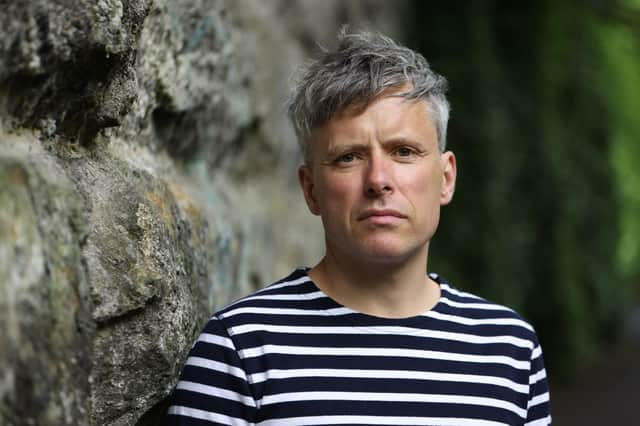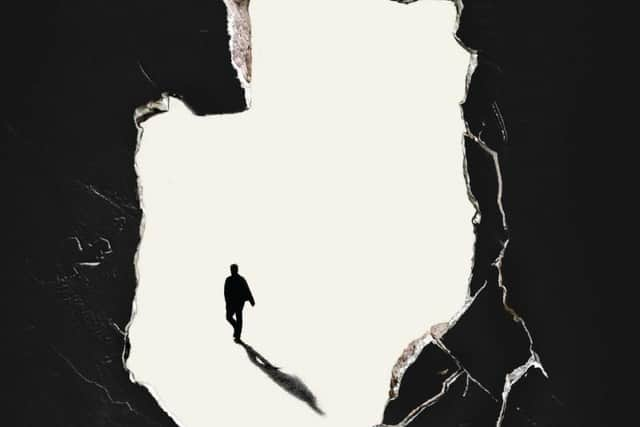Book review: The Voids, by Ryan O'Connor


This is a quite remarkable debut novel, perhaps the most intriguing Scottish debut since Jenni Fagan’s The Panopticon. It shares a kind of family resemblance with Fagan’s work in that it deals with chaotic lives, underlying eeriness and glimmers of hope amongst political despair. I was very impressed indeed by it, and it heralds an impressive new talent.
We have a (slightly fashionably) unnamed narrator, living in a high rise flat in Glasgow due to be demolished to make way for gentrified new-builds. These are the titular voids. At the start, with most of the residents relocated, our protagonist embarks on a series of behaviours that straddle the lines between obsessive compulsion, conceptual art and petty larceny. Basically, he enters the vacated flats and is making an inventory of what he finds. It begins with “random inscriptions, notes written somewhere” and spirals to “Beds. Wardrobes. Sofas. In one flat the sofa had been too big to fit through the doorway and had been left where it was, trapped mid-air in the doorway. Armchairs. Dining tables and chairs. Coffee tables. Rugs. Vacuum cleaners. Lamps. Paintings. Televisions. DVD players. Video machines. Stereos. Clothes. CDs. Records. Books. Sex aids. A motorbike. A moped. And photographs, so many photographs and shopping lists and letters”. It seems, to contradict Philip Larkin, that what will survive of us is not love, but clutter. This arcane museum of detritus is beautifully evoked, and the reader’s attention is quickly piqued with the central question: why?
Advertisement
Hide AdThe narrative scrolls back. Our anti-hero has a very problematic relationship with alcohol and drugs, which has cost him his pseudo-journalistic job on a free-sheet paper and his girlfriend. His novel is never going to be published. We learn, piecemeal, about him being abandoned by his mother, and also his father, a pub singer who claims he has met the Devil. But it freewheels forward at the same time, with various set-pieces: the gangster called the Afghan, a dust-up at a function for hairdressers, various absences, suicides and deaths with which to contend. It crams a great deal into 300 pages, but very little of it seems superfluous.


When I am reading I always think “who are the influences behind this?” An obvious one is JG Ballard – not just for High Rise but the under-rated Concrete Island. There are scenes of an orgiastic nature featuring disfigured individuals that are reminiscent of William Burroughs (who get a namecheck for Cities of the Red Night). I am long enough in the tooth not to be fazed by “shocking” sex scenes: they don’t offend me, but they do bore me. Or rather I am bored by the attempt to be shocking. But the name that kept coming back to me was Malcolm Lowry. Like Under The Volcano, this book is an epic, booze-fuelled bender, shot through with religious imagery – indeed, the very first page refers to someone looking like “a profane Christ the Redeemer”; later there are hallucinated angels intoning “we have come to abandon you”. Lowry’s novel is also explicitly mentioned. The Voids also has the strange mixture of a character who is profoundly delusional and yet remarkably self-aware. There is a scene both poignant and hilarious when the narrator decides to filch a cassock, in part for a feeling of transcendence and in part to try to get served in a bar he has been asked to leave for being so drunk.
O’Connor has a very distinctive prose style of his own. Quite frequently he sets up lexical contradictions; for example, writing about alcoholism, “one mouthful convinces him he’s about to discover the way out, and the next convinces him there is no way out”, and a few lines later, “It’s not true that the best way out is always through, but there are occasions when it’s the only way”. He allows himself some flourishes. “Those disaffected and abandoned by future resets. Barbarians, bampots, and bodhisattvas going mad on benzos, Buckfast and Bakunin”. Or the slightly attention-seeking “the sun rose like a glaucomic eye through layers of primordial mist”. There are perhaps too many descriptions of variously coloured skies, but given it is a book that flaunts its protagonist’s inherent complexity, such stylistic tics are venal rather than mortal sins.
None of that detracts from the novel’s humanity. For all the raucous and carnivalesque antics there are little moments of unexpected gentleness, of spontaneous care. The conclusions of both the backstory and the future story are both fitting and seem as if they had always been waiting. It is a book of “random correspondences, obscure symbols, arcane words and riddle, cries for help written everywhere. And if you stop to read each one, you’ll always see what you want to see, miss what you want to miss, and avoid going where you have to go”. There is a lot to admire in this novel, and it seems accomplished for a debut. Certainly, I will be extremely curious to see what he writes next.
The Voids, by Ryan O’Connor, Scribe, £14.99
A message from the Editor
Thank you for reading this article. We're more reliant on your support than ever as the shift in consumer habits brought about by coronavirus impacts our advertisers.
If you haven't already, please consider supporting our trusted, fact-checked journalism by taking out a digital subscription at https://www.scotsman.com/subscriptions